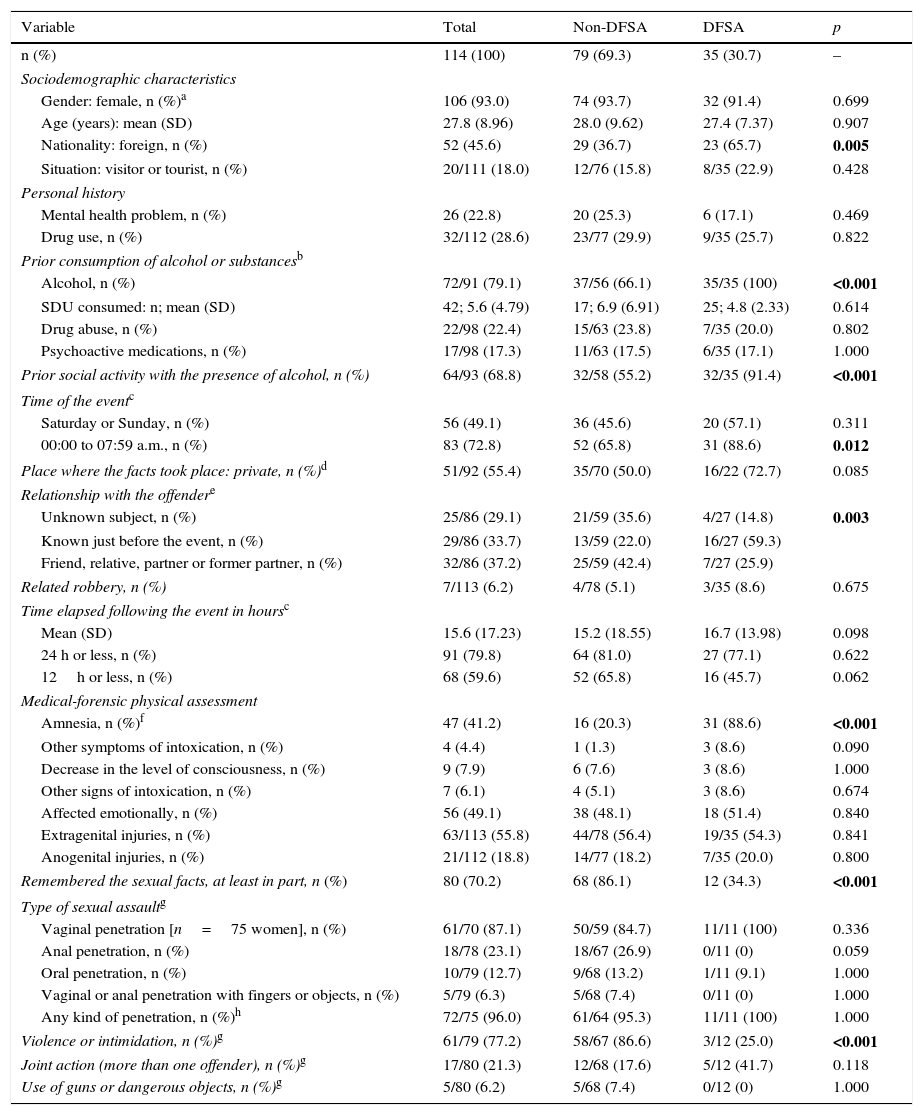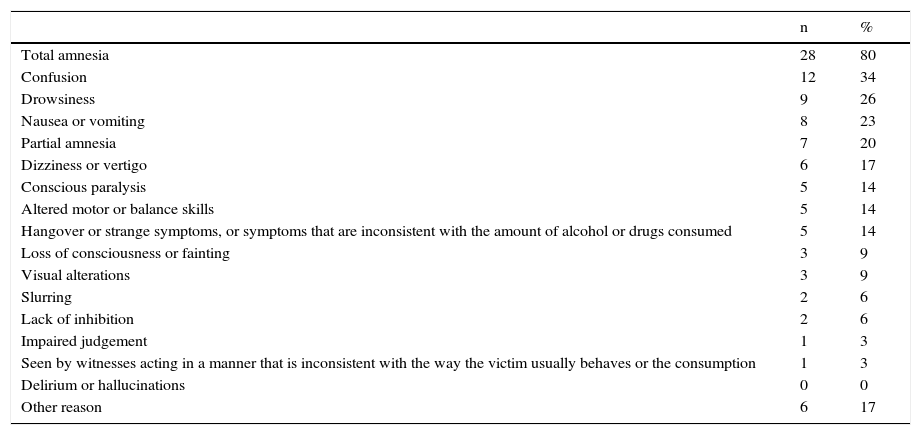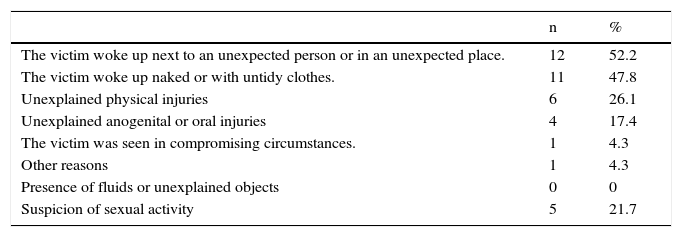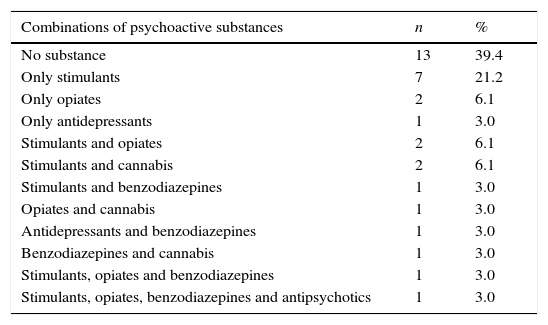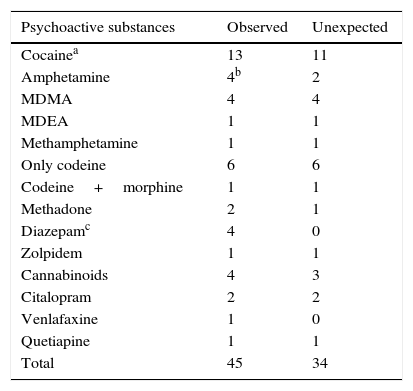To determine the frequency and characteristics of suspected drug-facilitated sexual assault (DFSA) among the victims of sexual assault in Barcelona.
Material and methodsProspective study of every adult consulting an emergency service because of alleged sexual assault and receiving forensic assessment in the city of Barcelona in 2011.
ResultsA total of 35 of 114 cases (30.7%) met suspected DFSA criteria. Compared with the other victims, suspected DFSA cases were more likely to experience amnesia, to have been assaulted by night, after a social situation and by a recently acquainted man, to have used alcohol before the assault and to be foreigners. In this group ethanol was detected in blood or urine in 48.4% of analysed cases; their mean back calculated blood alcohol concentration was 2.29g/L (SD 0.685). Also, at least one central nervous system drug other than ethanol was detected in 60.6%, mainly stimulant drugs of abuse.
ConclusionsSuspected DFSA is frequent among victims of alleged sexual assault in Barcelona nowadays. The depressor substance most commonly encountered is alcohol, which contributes to victims’ vulnerability.
Determinar la frecuencia y las características de la sospecha de sumisión química (SSQ) entre las víctimas de agresión sexual en Barcelona.
Material y métodosEstudio prospectivo de personas adultas atendidas en un servicio de urgencias por posible agresión sexual y con valoración médico-forense en la ciudad de Barcelona durante 2011.
ResultadosSe incluyeron 114 casos, de los cuales 35 (30,7%) cumplieron los criterios de SSQ. Este grupo se diferenció del resto en mayor frecuencia de: amnesia, hechos nocturnos y posteriores a actividad social y a consumo de alcohol, agresor recién conocido y origen extranjero. En este grupo se detectó etanol en sangre u orina en el 48,4% de los casos analizados; la etanolemia media estimada en el momento de los hechos fue de 2,29g/L (DE 0,685). Asimismo, se detectaron otras sustancias psicoactivas en el 60,6%, mayoritariamente drogas de abuso estimulantes.
ConclusionesLa SSQ es frecuente entre las personas atendidas por agresión sexual en Barcelona. La principal sustancia depresora identificada en estos casos es el etanol, que contribuye a la vulnerabilidad de las víctimas.





